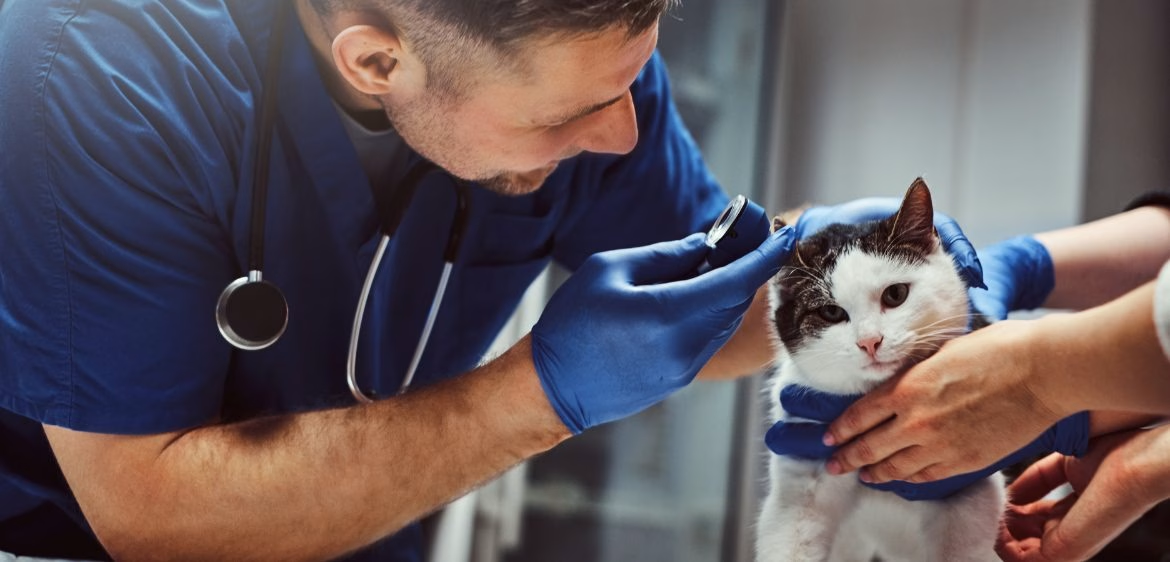As loving pet owners, we want our furry friends to live happy, healthy lives. When they get sick or need medical support, medications are often the key to recovery. But just like human drugs, pet medications can cause side effects, some mild, others more serious.
Understanding these side effects can help you recognize problems early and keep your pet safe during treatment. Here, we’ll break down the most common side effects of pet medications and what to do if you notice them.

Why Do Side Effects Happen in Pets?
Just like people, pets react differently to medications. A drug that works perfectly for one animal may upset another. Side effects usually happen because the medication affects more than its target, interacts with other drugs or conditions, or is not well tolerated by your pet’s body. Factors like breed, size, age, and health status can all play a role.
Common Side Effects
1. Digestive Upset
One of the most common side effects in pets is digestive upset. Medications like antibiotics, painkillers (NSAIDs), or deworming tablets can irritate the stomach lining. You might notice your pet vomiting, having diarrhea, drooling more than usual, or even refusing food.
Some pets also experience flatulence or soft stools. This usually occurs shortly after starting the medication. While mild stomach issues often go away on their own, it’s important to keep your pet hydrated and monitor them closely.
Offering the medication with food, unless advised otherwise can reduce this problem. If symptoms last more than 24–48 hours, or if there is blood in vomit or stool, contact your vet immediately.
2. Lethargy or Weakness
Some medications may cause your pet to feel tired, sluggish, or less active than usual. Sedatives, antihistamines, and some pain medications can make pets drowsy.
Your dog or cat might sleep more, move slowly, or seem uninterested in playing or eating. While rest is normal during recovery, sudden or extreme tiredness should not be ignored.
Watch closely, if your pet is unresponsive, stumbles, or can’t stay awake even for meals or walks, stop the medication and contact your vet. It’s also important to check if your pet’s energy returns once the medication ends.
3. Increased Thirst and Urination
If your pet starts drinking more water than usual or needs to urinate frequently, it might be due to side effects from certain drugs—especially corticosteroids like prednisone or diuretics.
While this is common and usually temporary, it can sometimes lead to accidents in the house or dehydration if water isn’t available. Always provide fresh water and observe their bathroom habits.
If your pet drinks excessively but still seems tired or if their urination becomes urgent or painful, it could be a sign of something more serious like kidney stress or diabetes. Speak to your vet if the symptoms persist after stopping the medication.
4. Skin Reactions
Skin reactions are also fairly common, especially after using flea or tick preventives, allergy medications, or receiving vaccines. Signs may include itching, redness, rashes, hives, or swelling at the site of injection or application.
Some pets might scratch or bite at the affected area, causing hair loss or sores. These reactions can vary from mild irritation to severe allergic responses. In most mild cases, the symptoms fade within a day or two.
You can apply a cool compress to the area and keep your pet from licking or scratching it. However, if the swelling increases, spreads, or your pet shows signs of distress, consult a vet right away.
5. Behavioral Changes
Medications that affect the nervous or hormonal systems like steroids, anti-anxiety meds, or painkillers can sometimes cause changes in behavior. Your pet might become restless, clingy, unusually aggressive, hyperactive, or even confused.
Some pets may pace, bark, or meow excessively, while others might hide or show signs of fear. These changes often appear within a few doses. It’s important to observe and note when the behavior started and what triggered it.
Sometimes a simple dosage adjustment solves the issue, but in other cases, an alternative medication might be needed. Always report major behavior changes to your vet.
6. Allergic Reactions (Severe But Rare)
Though not common, allergic reactions can be serious and require immediate attention. Reactions may include swelling of the face, lips, or tongue, hives, difficulty breathing, vomiting, pale gums, or even collapse.
These can occur within minutes to a few hours after taking a medication. Common culprits include vaccines, antibiotics, and certain injections. If you notice any of these signs, stop giving the medication and go to the vet or pet emergency clinic right away.
Never wait, as severe allergic reactions (anaphylaxis) can be life-threatening. Always inform your vet about known allergies or past reactions before starting a new medication.
How to Monitor Your Pet After Giving Medication
Always keep an eye on your pet for at least the first 24–72 hours after starting any new drug. Watch for changes in their appetite, behavior, bathroom habits, or energy level.
If your pet acts differently, take note of when it started and how long it lasts. Keep the medication packaging and dosage details handy in case your vet needs it. Taking photos or videos of the symptoms can also be helpful during consultations.
When to Call Your Vet
You should contact your vet if:
- Your pet has severe or persistent vomiting or diarrhea
- Shows signs of pain, confusion, or extreme weakness
- Refuses food or water for over 24 hours
- Has swelling, difficulty breathing, or collapses
- You’re unsure if a reaction is normal or serious
Trust your instincts, if something doesn’t feel right, it’s always safer to ask.
Tips to Reduce the Risk of Side Effects
- Always give the correct dose as prescribed
- Give medication with food if instructed
- Don’t mix different medications unless approved by your vet
- Inform your vet about any other treatments or allergies
- Never give human medicine to pets unless directed
Conclusion
Most pet medications are safe and effective when used correctly. Side effects are sometimes unavoidable, but many are mild and easy to manage.
The key is knowing what to expect and acting quickly when something seems off. As a pet parent, your job is to observe, protect, and advocate for your furry friend’s health.
By staying informed and working closely with your vet, you can help your pet feel better safely and confidently.




LEAVE A COMMENT